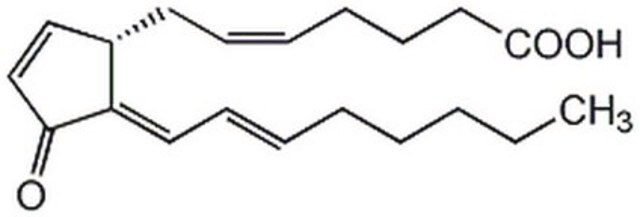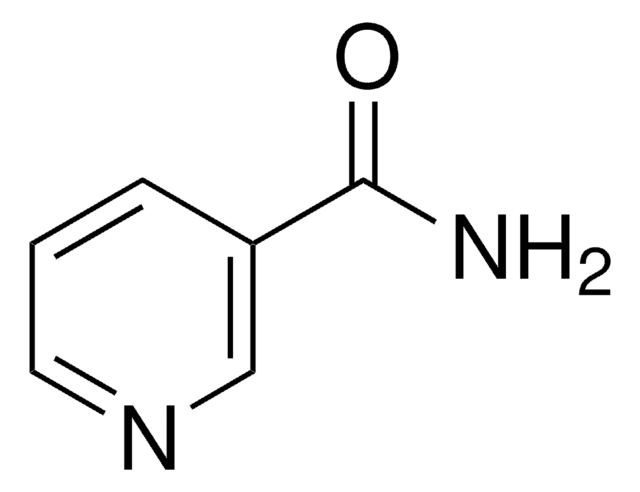B6688
BMS 493
≥98% (HPLC)
Synonym(s):
(E)-4-[2-[5,6-Dihydro-5,5-dimethyl-8-(2-phenylethynyl)naphthalen-2-yl]ethen-1-yl]benzoic acid, 4-[(1E)-2-[5,6-Dihydro-5,5-dimethyl-8-(phenylethynyl)-2-naphthalenyl]ethenyl]-benzoic acid, BMS204, 493
About This Item
Recommended Products
Quality Level
Assay
≥98% (HPLC)
form
powder
color
light yellow to yellow
solubility
DMSO: ≥20 mg/mL
originator
Bristol-Myers Squibb
storage temp.
2-8°C
SMILES string
CC1(C)CC=C(C#Cc2ccccc2)c3cc(\C=C\c4ccc(cc4)C(O)=O)ccc13
InChI
1S/C29H24O2/c1-29(2)19-18-24(14-10-21-6-4-3-5-7-21)26-20-23(13-17-27(26)29)9-8-22-11-15-25(16-12-22)28(30)31/h3-9,11-13,15-18,20H,19H2,1-2H3,(H,30,31)/b9-8+
InChI key
YCADIXLLWMXYKW-CMDGGOBGSA-N
General description
Application
- as an inhibitor for the dietary and pharmacologic manipulation of retinoic acid (RA) activity in vivo and in vitro
- for human induced pluripotent stem cells (iPSCs) culture and ventricular cardiomyocytes (VCMs) differentiation
- to inhibit retinoic acid (RA) signaling in explants
- as a retinoic acid receptor (RAR) inhibitor for the induction of synaptonemal complex protein 3 (SCP3) and ATP-dependent RNA helicase (DDX4) in primordial germ cells (PGCs)
Biochem/physiol Actions
Features and Benefits
Storage Class Code
11 - Combustible Solids
WGK
WGK 2
Flash Point(F)
Not applicable
Flash Point(C)
Not applicable
Certificates of Analysis (COA)
Search for Certificates of Analysis (COA) by entering the products Lot/Batch Number. Lot and Batch Numbers can be found on a product’s label following the words ‘Lot’ or ‘Batch’.
Already Own This Product?
Find documentation for the products that you have recently purchased in the Document Library.
Customers Also Viewed
Articles
We offer many products related to non-steroid nuclear receptors for your research needs.
Related Content
Apoptosis, or programmed cell death (PCD), is a selective process for the removal of unnecessary, infected or transformed cells in various biological systems. As it plays a role in the homeostasis of multicellular organisms, apoptosis is tightly regulated through two principal pathways by a number of regulatory and effector molecules.
n proliferating cells, the cell cycle consists of four phases. Gap 1 (G1) is the interval between mitosis and DNA replication that is characterized by cell growth. Replication of DNA occurs during the synthesis (S) phase, which is followed by a second gap phase (G2) during which growth and preparation for cell division occurs. Together, these three stages comprise the interphase phase of the cell cycle. Interphase is followed by the mitotic (M) phase.
Our team of scientists has experience in all areas of research including Life Science, Material Science, Chemical Synthesis, Chromatography, Analytical and many others.
Contact Technical Service






